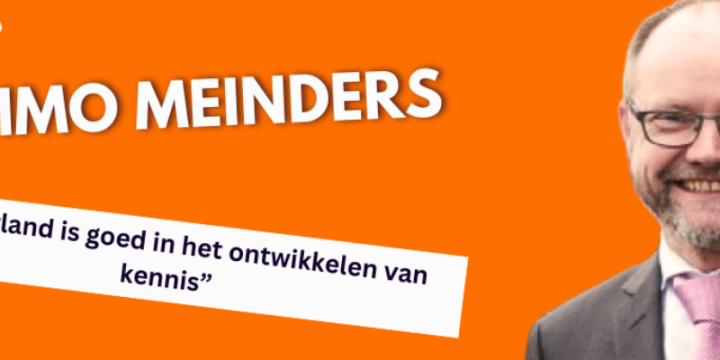The Dutch government is launching a National Digitalization Strategy (NDS) under the motto: Accelerating together is the only option. This strategy represents a joint effort by municipalities, provinces, water authorities, public service providers, and the central government to strengthen the country’s digital foundations and address societal challenges. In an increasingly digital world, this collaboration among public authorities is essential to building a resilient society and a strong economy.
Focus in approach
Digitalization presents us with urgent challenges, such as fragmented IT policies, the need for innovation, a shortage of digital professionals, and the geopolitical necessity of reducing dependence on foreign technology providers. With the NDS, the Netherlands is focusing on governance, collaboration, resilience, and a future-proof approach. State Secretary Van Marum of the Ministry of the Interior and Kingdom Relations:
The NDS is a significant milestone. The need and urgency to accelerate jointly, as one government, in the digital realm is widely recognized. We cannot afford to operate as isolated organizations. I am deeply grateful to the provinces, municipalities, water authorities, and public service providers for their constructive contributions and commitment. Digitalization now affects every aspect of our society. It has become a vital public utility, just like food, energy, water, and education. Dutch citizens must be able to trust that public services work intuitively and continue to function reliably. This collaboration gives me great confidence in the future of our digital government.
The NDS emphasizes six key priorities where all government organizations will accelerate together as one government:
- We will jointly adopt cloud technology.
We are exploring the realization of a sovereign government-wide cloud service, in cooperation with existing public service providers and the private sector. Our goal is to establish a central government marketplace for cloud technologies that effectively matches demand with the right supply—based on standards and European best practices. Essential data and services will no longer be stored in the public cloud whenever possible. - We will share and utilize data responsibly across all levels of government.
We will adopt a government-wide data-driven approach through a federated data system with binding agreements and standards. Domain-specific agreements will be aligned with this framework. We are also developing a nationwide structure to identify and address data bottlenecks faced by organizations and prevent future issues collectively. - We will responsibly harness the potential of artificial intelligence.
We will apply AI to help solve societal challenges and improve public services. A unified strategy will guide this effort. Successful applications will be scaled across government, and barriers to innovation will be removed. We aim for a high-quality AI infrastructure accessible to government, including: high-quality data, open-source language models from the Netherlands and/or the EU, well-trained and retained talent, and sufficient computing power. - We will put citizens and entrepreneurs at the center.
Many initiatives already support this goal, also beyond the digital domain. With the NDS, we will accelerate this focus. Citizens and entrepreneurs should experience interactions with the government as seamless and unified. The guiding principle is: always the right door. Public services and information will be offered proactively. The user experience for citizens and businesses is central to service delivery. - We will strengthen digital resilience and digital autonomy of the government.
A single government-wide approach ensures digital resilience and autonomy, including a set of collective solutions. We aim to increase our independence regarding digital technologies and reduce reliance on a limited number of vendors. We will continuously enhance the stability and digital resilience of government systems. In times of crisis, we will ensure rapid and effective recovery to prevent long-term disruptions. Joint crisis exercises will support this effort. There is also a national approach to quantum-safe cryptography, and all government bodies will be prepared in cooperation with the market to manage related risks. - We will enhance the digital skills of civil servants and ensure a modern working environment.
Organizations will work data-driven, and civil servants must be equipped accordingly. A digitalization personnel strategy will define the required in-house expertise and what can be sourced externally. This allows for more targeted recruitment, reskilling, and education aligned with technological innovations. We will take the lead in the development of digital expertise among civil servants and scale up centralized pools of digital professionals. ICT knowledge will be actively shared and used more efficiently. We strive for a modern digital workplace that enables civil servants to perform their work effectively.
A better digital future for all
The National Digitalization Strategy underscores that collaboration is essential to achieving real breakthroughs. The next step is to identify the required investments to build a robust digital government that works for all Dutch citizens. In parallel, implementation of the strategy will begin across all levels of government. Read the full announcement and parliamentary letter via the link:
To the announcement





